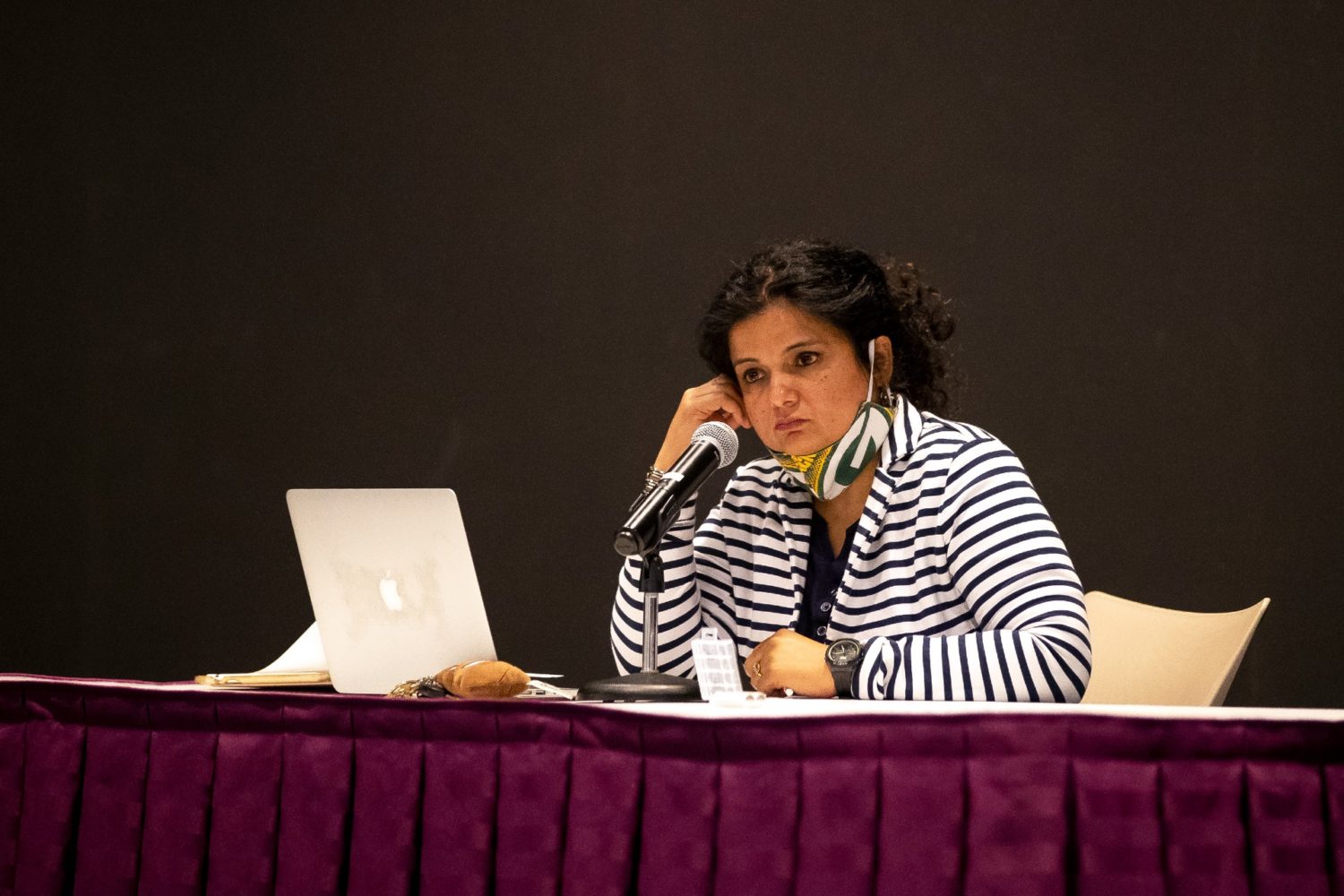

Brown County’s Racial Equity Committee spent June’s meeting discussing process, specifically how the group can best utilize the knowledge and skills already at the table. Just three meetings in, the ad hoc committee has spent time networking with potential guest speakers and researching other local governments and nonprofits that have embarked on a similar fight against racial inequity.
The committee was formed as the result of an effort to declare racism a public health crisis in Brown County. While the final resolution that passed the County Board does not include that specific language, the ad-hoc committee is charged with working for two years to produce recommendations to the County Board to make Brown County a more equitable place.
Several committee members expressed that it’s time to evaluate each member’s skills and expertise so they have a clear picture of what gaps exist in their own collective knowledge, before bringing more people into the fold.
“We all do have a good skill set of knowledge and what we know,” said Committee Member Louise Padron. “[When] we know what we know, then we can determine what we don’t know and when we realize what we don’t know, we can bring in organizations to fill in that gap.”
County Supervisor Amanda Chu also reminded the group that the committee is just an advising body. The real decisions will be made once the committee hands over recommendations on racial equity to the county board.
“We’re doing the pre-work that will trickle up to the county board,” Chu said. “That’s our relationship with the county as an Ad Hoc committee.”
The committee is considering joining the Government Alliance on Racial Equity to accomplish its goals; however, there is some concern about whether GARE will be best fit for the county.
Committee Chair Pooja Bambha-Arora added that in addition to considering GARE, the committee is reaching out to other counties to see how others have tackled this kind of work in the past.
“Every county has its own unique needs as well,” Bambha-Arora said, emphasizing that although the committee might work with GARE, they need to also work independently with the community to make sure Brown County’s needs are met.
Other GARE members in Wisconsin include the Cities of Madison and Middleton, Dane County and Milwaukee County. In Milwaukee County, GARE supported the development of a racial budget tool that mde each department in the county take responsibility to use a racial equity lens to re-envision its budget priorities. These budget tools had four objectives including diverse and inclusive workforce, people-focused design, employee perspective and equitable practice, according to a Frontiers in Public Health article authored by former Wisconsin Public Health Association Director-at-Large Lilliann Paine.
Committee Member Carina Abrego-Koch suggested that the committee should brainstorm the issues and concerns in the community.
“Before we can set goals we have to know what the issues are,” committee member Tara Yang said in agreement.
Refugees in Brown County was one issue that was brought up on Monday by the Brown County Refugee Taskforce via an email sent to County Supervisor Megan Borchardt. In 2019, the Trump administration required that individual counties approve refugee resettling. The Green-Bay Press Gazette reported that the Brown County Board voted unanimously to remain open to refugees. Each year, the county welcomes an average of 25 to 30 people, according to the report.
The taskforce shared in its message that many of the refugees have reported that they are not getting their needs met and that this is especially true for groups from Myanmar, Korea and the Democratic Republic of the Congo.
There are between 1,272 and 5,093 refugees in Brown County, according to a 2020 report by UW-Madison’s La Follette School of Public Affairs. However, the report found that many people in this community still need help with essentials like employment, housing, access to food and public aid and even school enrollment.
As one of the only Black men in his neighborhood, community member Breck Warren said he would like to see more understanding from his community. Warren is a teacher in the Oneida Nation School System and got a chance to sit in on the committee meeting on Monday. Warren said that so far he is pleased with the direction of the committee.
“It seems like plans are being put into place and I can’t wait to see what the action plans are for the committee,” Warren said.
Moving forward, the committee decided to use future meetings to potentially work in small groups to problem solve, pinpoint more issues and discuss the best workflow for the committee.
“Today was a really important opportunity to bring some focus to what we want to do,” said Vice Chair Rashad Cobb, adding that the group will focus on two major initiatives, including bringing in organizations and speakers to train the county, and focusing on what kind of recommendations the committee will present to the county board.
“I feel a lot better than the last meeting,” committee member Jose Villa said, noting that this meeting confirmed a process for the committee to work with. “We have a better orientation on how we will go about the goals.”
Brown County’s next Racial Equity Committee meeting will be held on July 26 at 5 p.m.



